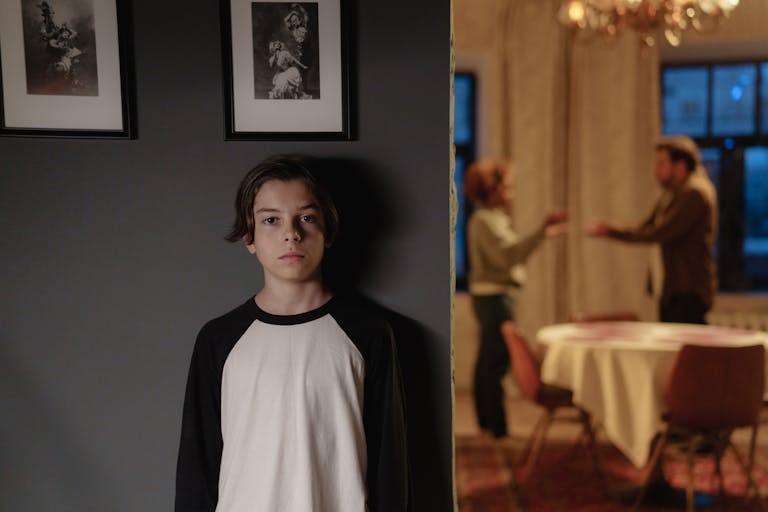Why Friendship Can Be Just as Meaningful as Romantic Love (+ video)
Romantic love is frequently the first relationship that springs to mind when we consider the partnerships that have shaped our lives. However, Rhaina Cohen questions this romantic-centric narrative in her provocative TED Talk, Why Friendship Can Be Just as Meaningful as Romantic Love. She argues that friendships can be just as fulfilling, intimate, and deep as love relationships, if not more so. This article examines her observations, using psychological science to highlight the importance of friendships and the actions we may take to strengthen them.

Rethinking the Value of Friendship
Friendships have long been viewed as secondary relationships that frequently take a backseat to romantic and family connections. But why is this? Historically, relationships based on social or legal obligations—like marriage—have been valued more highly by society than those resulting from mutual love and choice.
Cohen emphasizes the need for a paradigm change, saying that friendships should be acknowledged as essential, life-changing connections. This claim is supported by psychological studies. According to studies, friendships greatly improve mental health and emotional resiliency. Strong social ties, such as friendships, are linked to a 50% higher chance of longevity, according to a study by Holt-Lunstad et al. (2015), indicating their significant influence on general well-being.
The Psychology of Deep Friendship
Friendships can fulfill 3 critical psychological needs, often matching or exceeding what romantic relationships provide:
1. Emotional Support and Intimacy
Deep friendships offer a safe space for sharing vulnerabilities, fears, and dreams. Unlike the pressures of romantic or familial relationships, friendships allow for a uniquely non-judgmental exchange. Research by Demir and Davidson (2015) found that high-quality friendships significantly predict life satisfaction, underscoring their emotional value.
2. Identity and Personal Growth
Friendships play a vital role in helping individuals explore and affirm their identities. They provide validation without the societal expectations tied to romantic relationships. Psychologists Deci and Ryan (2000) identified this need for validation as central to self-determination theory, which emphasizes autonomy and connectedness as pillars of personal growth.
3. Flexibility and Lifelong Connection
Unlike romantic partnerships, which may face societal pressures like marriage or cohabitation, friendships can be more adaptive. They thrive across life stages, accommodating changes in career, location, or personal priorities. Friendships, thus, provide stability amidst life’s uncertainties.
Breaking the False Dichotomy Between Friendship and Romance
According to Cohen, friendship and romantic love are mistakenly classified as essentially different by our culture, which has established a hierarchy between them. Because friendships are viewed as secondary by both sides, their worth is diminished.
However, the advantages of love, loyalty, and life-improving connections can be found in both kinds of relationships. Social expectations are the source of the difference. While friendships remain flexible and adaptive, romantic relationships are frequently thought of as culminating in particular milestones, like marriage or cohabitation. Because of this ability to adapt, friendships frequently last longer and experience fewer conflicts.
For instance, friends’ emotional labor could look like that of partners. The psychological advantages of sharing life’s highs and lows with a close friend can be comparable to those of a romantic relationship.
Building Intentional Friendships
To bring friendships to the forefront of meaningful relationships, we must treat them with the same care and intentionality as romantic relationships. This includes:
- Prioritising Time
Scheduling time for your friends shows that they matter. Regular catch-ups, even virtually, reinforce the bond. - Open Communication
Transparency about needs and expectations strengthens any relationship. Discussing boundaries or conflicts openly can deepen the trust between friends. - Investing Emotionally
Vulnerability is the cornerstone of intimacy. Sharing fears, dreams, or personal challenges fosters a sense of closeness. - Creating Rituals Together
Rituals, such as annual trips or weekly phone calls, give friendships structure and significance. - Celebrating Milestones
Just as romantic partners celebrate anniversaries, friends can celebrate meaningful milestones together, reinforcing the relationship’s importance.
The Cultural Stigma Against Valuing Friendships
In addition to urging a cultural change, Cohen’s call to action acknowledges friendships as being equal to romantic love. In popular culture, romantic love is frequently celebrated while friendships are ignored.
Movements that challenge this narrative are, nevertheless, starting to emerge. The beauty of platonic friendship is becoming more widely recognized thanks to books, podcasts, and social activities. The emergence of “chosen families” among LGBTQ+ communities, for instance, is a prime illustration of how friendships may take the place of traditional parental responsibilities and show their transformational power.
Why Friendship Matters for Mental Health
The mental health implications of friendship cannot be overstated. Friendships not only promote emotional resilience but also fight loneliness, which has been connected to risks for anxiety, depression, and even cardiovascular disease. According to a meta-analysis by Holt-Lunstad et al. (2015), social isolation had the same negative health effects as smoking fifteen cigarettes a day. People can guard against these risks and create a buffer against life’s stresses by developing friendships.
Conclusion
In her TED Talk, Rhaina Cohen presents an innovative perspective on the importance of friendship in our lives. She challenges society’s focus on relationships and encourages us to think more broadly about connection and love. When handled carefully and intentionally, friendships can provide a level of intimacy and support that is on par with romantic love. Recognizing this allows us to live richer, more connected lives, where love exists in many forms.
References
Cohen, R. (2021). Why Friendship Can Be Just as Meaningful as Romantic Love [Video]. TED Talks. Available at: https://www.ted.com
Deci, E. L., & Ryan, R. M. (2000). Self-determination theory and the facilitation of intrinsic motivation, social development, and well-being. American Psychologist, 55(1), 68–78.
Demir, M., & Davidson, I. (2015). Toward a better understanding of the relationship between friendship and happiness: Perceived responses to capitalization attempts, friendship quality, and happiness. Journal of Happiness Studies, 16(3), 553–572.
Holt-Lunstad, J., Smith, T. B., Baker, M., Harris, T., & Stephenson, D. (2015). Loneliness and social isolation as risk factors for mortality: A meta-analytic review. Perspectives on Psychological Science, 10(2), 227–237.
Nelson, T. D., & Trotter, R. (2020). Friendship’s role in personal and psychological development. Journal of Social Psychology, 160(2), 145–160.
Paxton, R. J., & Moody, J. (2019). Loneliness and the quality of intimate relationships: A study of platonic friendships and romantic love. Social Science Research, 83, 102–118.
Rubin, Z. (2016). Social bonds: Revisiting the psychology of friendship and intimacy. Current Directions in Psychological Science, 25(4), 217–223.







